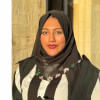79% female commuters in Dhaka experience sexual harassment on public transport: research says

Recent research led by BRAC James P Grant School of Public Health, BRAC University has shown study which indicates nearly 79% female commuters in Dhaka experience sexual harassment on public transport. Among which about 60% feel traumatised and 12% are unable to overcome the experience. The data consisted of 1030 respondents among which 60% were female and 40% were male. Analysis of the study titled 'Transportation accessibility and Safety in Dhaka City: A Gender Based Assessment' reveals that one in every six female commuters faces daily sexual harassment.
The findings were part of a comprehensive four-year research initiative titled "Pathways to Equitable Healthy Cities: Navigating Towards a Better Dhaka." The research was disseminated during a presentation held at the Capital's Six Seasons Hotel on February 29.
In addition to the issue of sexual harassment, the research also shed light on other critical urban health challenges facing Dhaka. Another study titled 'Spatiotemporal Variability of Urban Greenspace and Surface Temperature in Dhaka city: A Public Health Aspect' has shown that Dhaka only has 2.24% greenspace coverage. The study also finds that increased temperature and decreased humidity were observed in Dhaka city from 1990 to 2020. The research was based on data from the 2011 Census and aerial imagery to perform the analysis for city wards. The study also reveals that Dhaka North City Corporation (DNCC) areas have less greenspace than Dhaka South City Corporation (DSCC) areas.
A study titled 'Policy Pathways to Daylight Availability: Addressing Challenges in Dhaka' has shown that there are significant inverse relationships between urban density and lighting levels. The lack of natural light can contribute to significant health issues like disrupting circadian rhythms, vitamin D deficiency along with increasing the risk of depression and other mood disorders.
One of the studies titled 'Healthy Dhaka: Way forward for a bicycle friendly city' has shown the health factors related to bicycles. Key findings of this research says that bicycling can mitigate the rising obesity in people living in Dhaka. Mentioning that the bicycle is a more economical and environmentally friendly alternative, the research made policy suggestions to introduce more bicycle lanes and bicycle parking areas in Dhaka city including parking areas in certain points like markets, educational institutions, offices, Metro and bus stations and so on.
The Pathways to Equitable Healthy Cities initiative is part of a global partnership involving cities like London, Beijing, Accra, Tamale, Vancouver, and Dhaka. During the dissemination session, Professor Zahidul Quayyum highlighted the project's vision to leverage scientific research for directing urban development towards enhancing health equity, while Deputy Dean Prof. Malay Kanti Mridha emphasised the importance of integrating research findings into policymaking.
As discussions concluded, it became evident that addressing Dhaka's complex health and environmental challenges requires a multi-dimensional approach, integrating research insights, community engagement, and policy reforms. With concerted efforts and collective action, the Pathways project aims to navigate Dhaka towards a healthier, more equitable future.

 For all latest news, follow The Daily Star's Google News channel.
For all latest news, follow The Daily Star's Google News channel. 








Comments